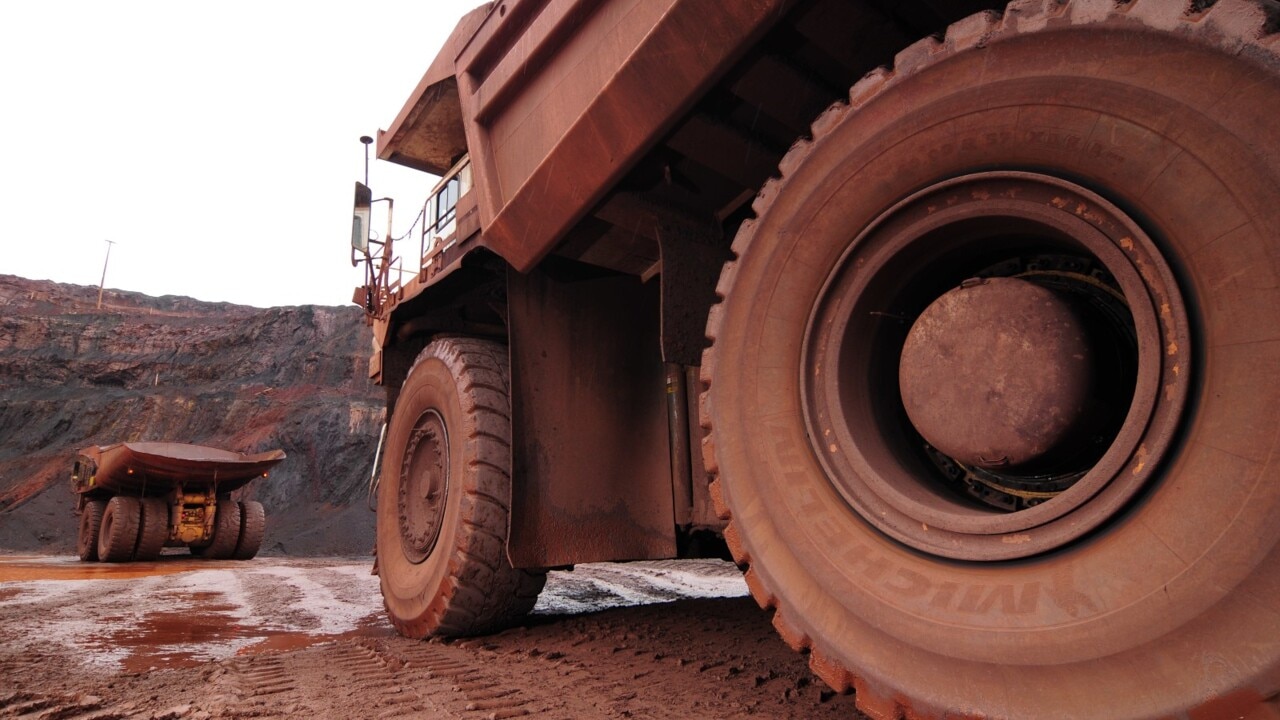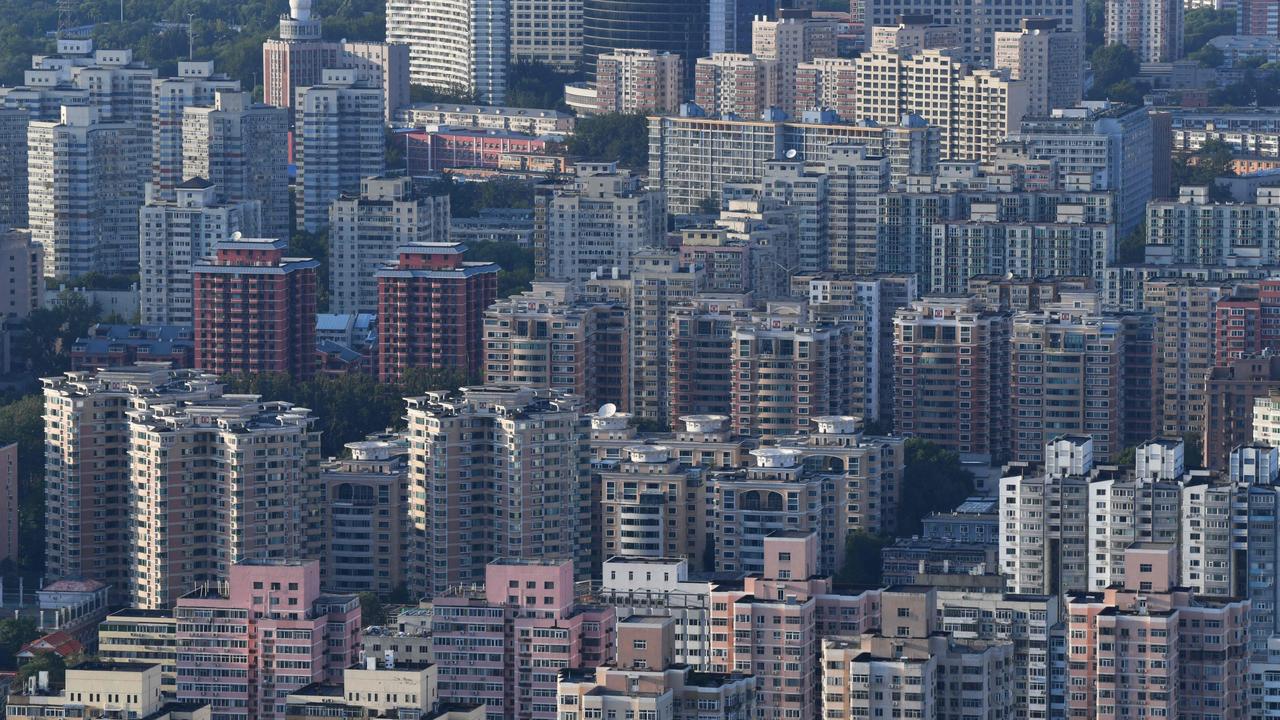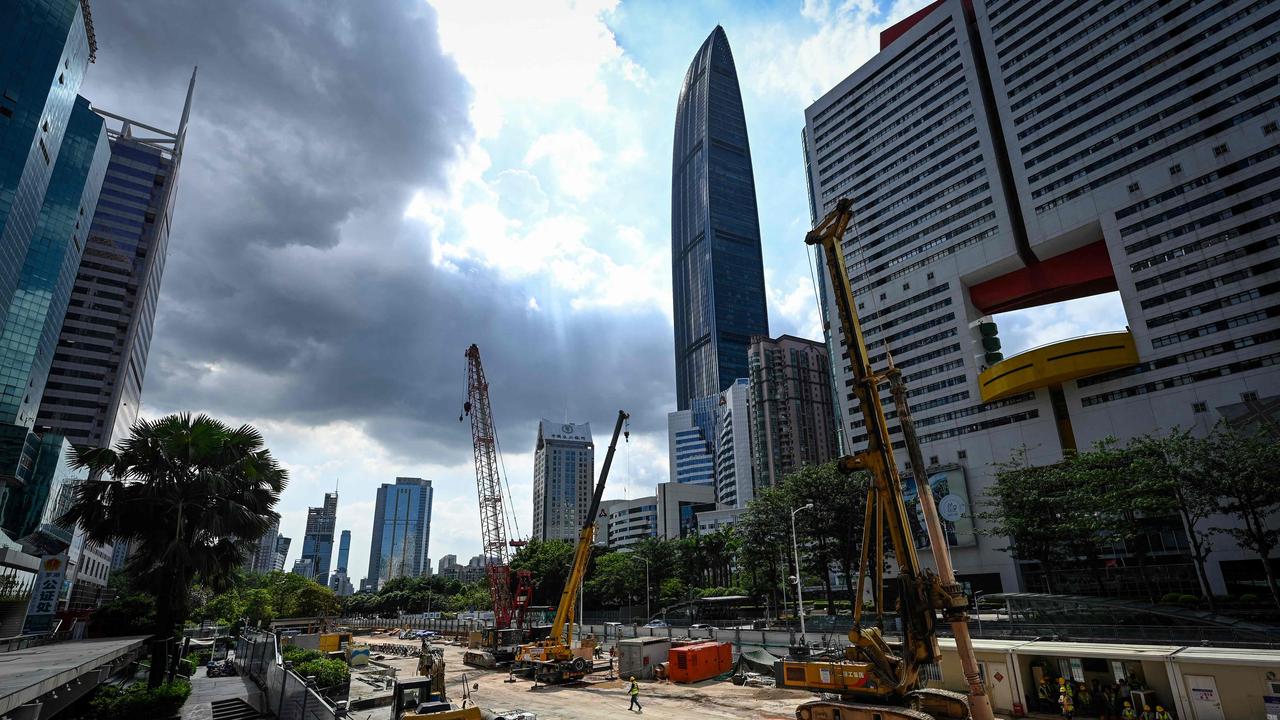Inside China’s property crisis as thousands boycott mortgage repayments
One nation’s crumbling property sector is leaving citizens and businesses ruined – and it should serve as a warning for the rest of us.

China’s property sector is crumbling in the wake of the country’s tough pandemic restrictions, with frustrated homeowners taking part in unprecedented mortgage boycotts.
In August, the nation recorded its 12th straight month of falling property sales, as cash-strapped developers struggle to complete projects.
The country’s economic growth was just 0.4 per cent year-on-year in the second quarter – its slowest rate since the initial Covid outbreak.
So far, more than 20 major developers have defaulted on their debts in the past year alone, with S&P Global Ratings warning around 20 per cent of Chinese developers are now at risk of becoming insolvent.
China’s Evergrande has now become the world’s most indebted property developer after racking up about $US300 billion ($A436 billion) in liabilities.
Stream more property news live & on demand with Flash. 25+ news channels in 1 place. New to Flash? Try 1 month free. Offer ends 31 October, 2022 >

The property crisis has become so unbearable that hundreds of thousands of citizens have banded together and refused to make their home loan repayments on delayed housing projects. (It is common in China that mortgage payments are made before new properties are finished.)
These mortgage boycotts have been held across dozens of cities in an incredible show of defiance to President Xi Jinping’s strict Chinese Communist Party regime, which often responds harshly to any form of dissent.
Recent research from ANZ estimated the boycotts could impact about 1.5 trillion yuan ($A220 billion) of mortgage loans, or roughly 4 per cent of the total outstanding mortgages.
Last month, Betty Wang, senior China economist from ANZ Research, told the ABC that the mortgage boycotts were “quite significant”.
“It signals the downside risks in the property sector have shifted from supply-side factors to demand-side factors,” she said.
“Mortgages are regarded as the safest asset for Chinese banks as they do offer quite a good return.”
Ms Wang said if the issue isn’t brought under control, it will threaten China’s financial stability “for sure”.
Julian Evans-Pritchard, senior China economist at Capital Economics, said the boycotts reflect growing fury among homebuyers.
“The boycotts appear to reflect growing concern among homebuyers about the ability of indebted developers to deliver the homes they have sold, as well as some discontent about declines in new home prices, which have left many buyers sitting on paper losses,” he said.
Sign property crisis is deepening
Last week, Chinese property development company, Country Garden, revealed it expects first half profits to fall by as much as 70 per cent, pointing to a deepening of the property crisis.
The company said core net profits in the six months to June 30 are predicted to fall between 4.5 billion yuan ($A958 million) and 5 billion yuan ($A1 billion).
This is a massive drop from the 15.2 billion yuan ($A3.2 billion) profit it recorded last year, with Country Garden revealing the news in a regulatory filing last Thursday.
The company attributed the expected decrease in profit to the “impact of the tough business environment in the real estate industry”, along with the continued impact of Covid-19.
It also blamed the “decrease in revenue recognised for properties sold caused by the downturn in the market and the slowdown in construction progress”.
The expected net foreign exchange losses due to the fluctuations of foreign exchange was another reason given by the company.
One Chinese homeowner has spoken to The Australian about the growing financial pressure he is under as a result of the property crisis.
Li Daqing – not his real name – bought a one-bedroom apartment, measuring just 60sq m, in the city of Sanhe for more than 1.4 million yuan ($A300,000) in 2017.
The 32-year-old made the purchase right at the top of the property market – and has now been forced to re-list the property for just 800,000 yuan ($A170,000).
“Even at this price, nobody wants to buy it,“ he told the publication.

Mr Li is just one of the many citizens struggling in the wake of the pandemic, with his small construction material shop going into bankruptcy at the start of 2022.
He now owes 900,000 yuan ($A191k) to his bank and another 420,000 yuan ($A89.5) to other creditors, with the financial hardship also becoming a major strain on his marriage.
The financial hardships being experienced by many citizens and businesses in China have been exacerbated by Beijing’s ruthless zero-Covid strategy.
Residents have endured repeated lengthy lockdowns that have severely impacted economic growth.
Last week, the People’s Bank of China cut its policy rates, bringing its seven-day reverse repurchase rate – a key rate at which the central bank provides short-term liquidity to banks – to a new low.
It also cut its one-year medium-term lending facility, surprising forecasters, although some analysts believe this may not be enough to revive credit growth.
Credit growth in China edged down in July, with analysts at Nomura saying in a report that it did not bode well for the second half of the year.
“The combination of zero-Covid strategy and the deteriorating property sector continues to drag down the economy, even as export growth remains elevated and the automobile sector gets a boost from the purchase tax cut,” they said.
Australia’s housing market also at risk
It isn’t just China that is dealing with a problematic property sector, with Australia being branded one of the world’s most risky housing markets.
Analysis released by Bloomberg Economics back in June showed that 19 OECD countries have combined price-to-rent and home price-to-income ratios that are higher today than they were ahead of the 2008 financial crisis – an indication that prices have moved out of line with fundamentals.
Among them, Australia is facing some of the biggest challenges, sitting as the fourth most risky property market in the developed world.
Only New Zealand, the Czech Republic and Hungary were found to have housing markets that were at a higher risk of imploding.
The analysis found Australia performed very poorly when it came to key factors like price-to-rent ratio, price-to income ratio and real price growth.
It means that Australia’s housing market is one of the world’s bubbliest and is particularly vulnerable to falling prices.
Bloomberg stressed that while a bad ranking doesn’t make a housing crisis a certainty, it said it is an “obvious vulnerability” as central banks raise interest rates and mortgage repayments move higher.
More Coverage
“That’s another burden for a global economy already slowing down and in danger of falling into a recession,” it said.
“Falling home prices erode household wealth, dent consumer confidence and potentially curb future development.”
– with AFP






